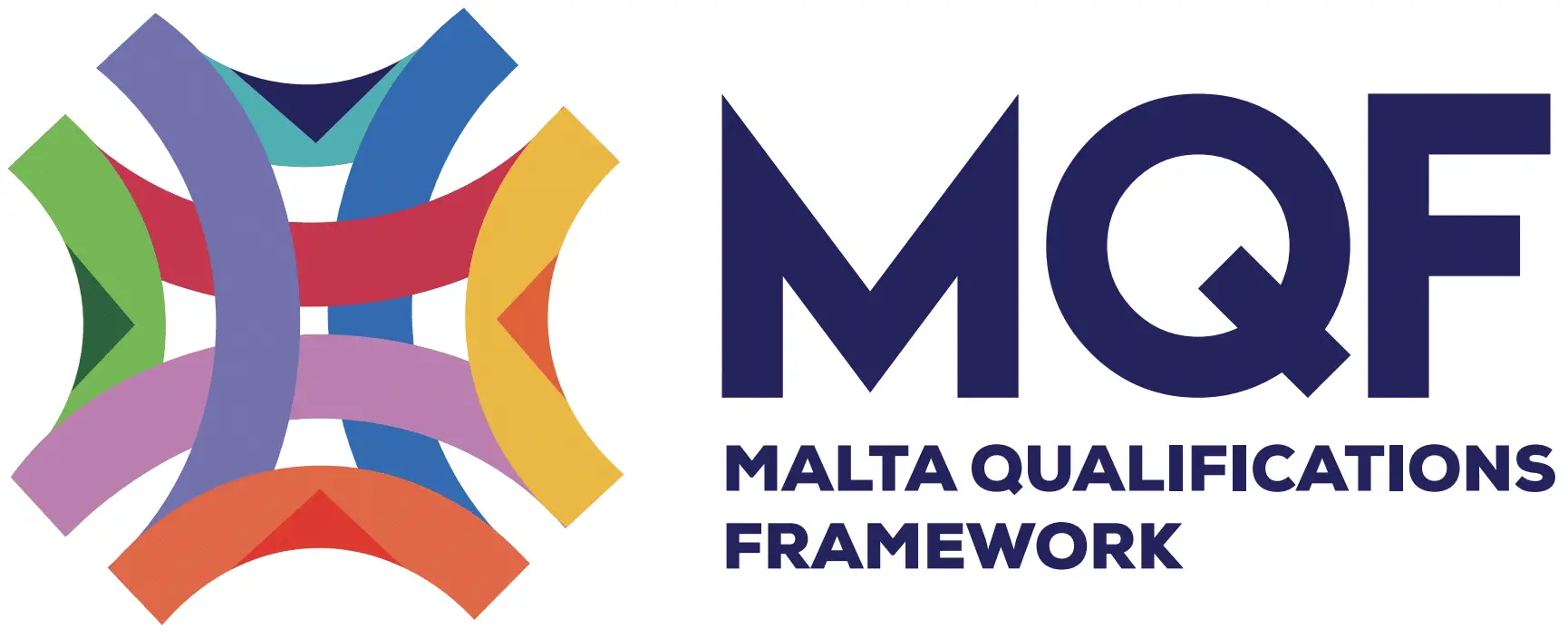Doctor of Business Administration
Online DBA Degree Program Overview
Doctorate of Business Administration via Distance Learning
The SMC DBA degree program is provided online in a synchronous cohort mode and follows a distinct calendar with several intakes per year (calendar and dates are available on request). Physical presence is not required. The curriculum exposes the learner to cutting edge business and management concepts and theory as they apply these to real-world business problems. The students enhance their analytical and critical thinking skills while contributing to the body of professional business knowledge through their own research project (i.e., the dissertation). Our DBA balances the rigor of academic research, with the practical focus of working professionals. Dissertation topics are applied in nature, i.e., the student will focus their research to solving real issues confronting their organization. This program is designed for individuals with significant business experience who strive to increase their stature in the business community, either through the pursuit of executive leadership positions or applied business research employments. Certain academic career options are also open.
DBA Degree Objectives
The Doctor of Business Administration is the ultimate business degree
The program combines workplace and professional engagement with the scholarly rigour of the academic institution. The DBA aims to develop the participant’s ability to undertake independent research at an advanced level and make a significant contribution to knowledge and professional practice through the evaluation of business structures, contexts and processes from the perspective of a critically reflexive research-practitioner. SMC focuses on helping you become an exceptional leader in your profession. This means that every course we offer is designed with enterprise, leadership, and your success in mind.

Doctor of Business Administration
Meet our DBA Program Students
SMC’s typical DBA students are mid- to top-career high-achievers who have already established themselves as business leaders or are on track to being appointed to executive positions, supported in their academic ambition by their employing organization. SMC DBA applicants also display a competence in solving problems analytically and in separating opportunities and challenges in terms of cause and effect, as well as the potential to conduct research. Hence, the program has been designed for senior practitioners in their field, who are used to identifying and dealing with various “real life” issues. Potential DBA candidates expect policy and practice within their organizations to improve in light of their doctoral research and recognize that in investigating problems as research-practitioners, they (and their organizations) will undergo transformative change.




Doctor of Business Administration Program Details
DBA Program Course Outline
All courses are at EQF Level 8. Although ECTS credits do not apply at this level, each course has an indicative number of 7 ECTS credits. The total program learning hours amount to 4500 (indicative).
The quantitative research methods course introduces students to the field of social science research. It examines in depth the research process and introduces doctoral candidates to the various aspects of conducting scientific research, with a specific focus on quantitative methodology. Topics covered include problem statement development, research question/hypothesis formulation, theory synthesis, validation of research instruments, sampling strategies within a unique cultural context, data collection techniques, ethical issues in research, and data analyses methodologies. The course will also introduce big data and its relevance to business research.
- Contact Hours: 35
- Self-study Hours: 130
- Assessment Hours: 10
- Total Hours: 175
This course provides students with the foundation for conducting applied qualitative business research, i.e., to design, conduct, read and evaluate qualitative research projects. Attention is given to the role qualitative research can play alongside quantitative research, for example in defining variables, or ‘quants’, or in describing the ‘why’ behind quantitative results. The course also presents the strength of qualitative research in providing rich descriptions and context to observed phenomena. Various models of qualitative methods and designs will be explored including program evaluations, case studies and interviews. Students practice the skills by designing qualitative research.
- Contact Hours: 35
- Self-study Hours: 130
- Assessment Hours: 10
- Total Hours: 175
The need for better corporate governance practices is self-evident. This course explores the system by which firms are financed, directed and controlled and the role the various stakeholders play. Attention is given to reviewing and critically evaluating rules, regulations and procedures for making sound financial and managerial decisions. A focus is placed on exploring contemporary research in such areas as the agency problems between stakeholders, executive compensations, investment and financial considerations, mergers and acquisitions, etc.
- Contact Hours: 35
- Self-study Hours: 130
- Assessment Hours: 10
- Total Hours: 175
This course reviews the practices, theories and guiding philosophies that drive performance management programs. The design, implementation and controlling of such programs is critically evaluated through case studies from diverse companies with different performance management schemes. These programs are evaluated according to their organizational effectiveness, employee acceptance and ability to influence productivity.
- Contact Hours: 35
- Self-study Hours: 130
- Assessment Hours: 10
- Total Hours: 175
In this course students learn how to use economic principles as analytical tools for managers, enabling them to make more informed production and pricing decisions. Students also learn how different market structures affect business performance and strategy. Topics include: demand and forecasting, production and cost, pricing and output decisions, and market structures.
- Contact Hours: 35
- Self-study Hours: 130
- Assessment Hours: 10
- Total Hours: 175
This course addresses the complexity and multidimensional nature of advanced management systems. It exposes students to the academic debates in the field of strategy and critically evaluates three areas: 1. institutional strategic perspective, 2. behavioral strategic perspective, and 3. emerging strategic management perspectives. Most importantly, the course challenges students to apply theoretical models and practical experience to specific regional business issues from a strategic perspective.
- Contact Hours: 35
- Self-study Hours: 130
- Assessment Hours: 10
- Total Hours: 175
The course aims to provide students with a comprehensive framework of international marketing by exploring the ever-evolving global business environment facing today’s marketing managers. Theoretical and practical knowledge of International Marketing, its operations and strategies, is used to understand, analyze and evaluate the factors that influence marketing success across global markets.
- Contact Hours: 35
- Self-study Hours: 130
- Assessment Hours: 10
- Total Hours: 175
This module aims to shape and develop a critical understanding of contemporary leadership and its impact on organizational functioning. Learners will be introduced to the knowledge, skills and attitudes needed to organize, evaluate, and apply the state of science in leadership research using a systematic and process-oriented approach. The module will facilitate an in-depth engagement with leadership theories in relation to both their own leadership skills and capacities and leadership practice within organizational contexts. Learners will further their research skills with a focus on quantitative research methodology, especially survey and experimental research designs.
- Contact Hours: 35
- Self-study Hours: 130
- Assessment Hours: 10
- Total Hours: 175
This course provides an in-depth exploration of action research, a form of self-reflective systematic inquiry on a possible solution to a business problem. The course seeks to help students design an action research project at the doctoral level, by integrating theory, the scientific method and practical experience and applying them to solving an actual business problem. The course introduces the stages of action research: entry, contracting, diagnosis, action and evaluation and guides student researchers in developing mutually agreed research objectives with the research site. The final student output of this course is the dissertation research proposal.
- Contact Hours: 35
- Self-study Hours: 130
- Assessment Hours: 10
- Total Hours: 175
As a final requirement for program completion, all SMC DBA students must complete a dissertation. Focus of the research is the thorough investigation of a significant business problem or challenge of strategic importance facing their own organization, industry or market and design an intervention with measurable outcomes. Within this final dissertation, students must apply relevant interdisciplinary knowledge and select the appropriate research design and methodology for their study. The student’s dissertation is expected to make a significant contribution to the understanding of a business phenomenon. 203 Contact Hours, 2597 Self-study Hours, 100 Assessment Hours, 2900 Total Hours.
DBA Degree Learning Outcomes
Upon completion of the program, learners will have acquired the following competences, knowledge, and skills (click on each heading to see the details):
- Develop significant knowledge and systematic understanding of the theoretical foundation of business theories and concepts in both a global and organisational context
- Design and autonomously conduct original research with consideration for contemporary societal perspectives that contributes to or advances empirical and theoretical knowledge in business
- Develop effective communication skills to authoritatively engage and empower a diverse (specialized and non-specialized) audience as a scholar-practitioner regarding the relevance of theories, applications and practical solutions for both organisational and global business challenges
- Introduce solutions to challenges in the local and global business domain based on original and scholarly research that substantially advance professional practice and drive innovation in business procedures and policy
- Develop personal, consultancy and research competencies sufficient to continue to undertake rigorous and relevant research at an advanced level that contributes to theory and practice in business and management, and to continue a lifetime of self-reflective development
- Develop a systematic awareness of social and ethical issues, both within the business domain and in a wider societal context, and assume a leading role to promote remediation and change
- Engage in full professional and academic communication with others in their field and place of work in both national and international contexts and give papers/presentations to ‘critical communities’ for developmental purposes
- Provide a convincing argument to initiate a major change initiative within an organization
- Demonstrate the ability to disseminate evidence-based management practice through identifying and communicating to various stakeholder groups
- Act as an independent, self-critical, and self-directed student who professionally guides and supports the learning of others and manages his or her own professional development while being fully aware of relevant implications of his or her study.
- Use a full range of learning resources and learn through reflection on practice and experience.
Benefits of Studying a Doctor of Business Administration
A Doctor of Business Administration (DBA) degree offers numerous benefits for professionals aiming to advance their careers, and is the pinnacle of achievement in business education.
One of the key advantages of a DBA is the development of your expertise in a specific business area, significantly enhancing your ability to analyze complex problems and develop effective strategies. Unlike a business master’s degree, which provides a broad overview of business principles, our online DBA program involves intensive research and the application of theory to real-world business challenges.
Our Doctor of Business Administration program will also help to enhance your marketability in your career and give you the potential for higher earnings. If you're aspiring to executive positions, your academic title can provide a significant advantage.
The research skills gained through a DBA online program are particularly valuable, enabling graduates to tackle business challenges with a scientific mindset and utilize advanced quantitative and qualitative methodologies. This analytical capability is crucial in today’s data-driven business environment, where making informed decisions based on empirical evidence can lead to significant competitive advantages. Furthermore, the communication skills that you will develop during the program will prepare you to effectively apply your knowledge to your role, influence decision-making processes, and contribute to scholarly knowledge in the field.
Doctor of Business Administration programs can be transformative experiences, allowing you to gain professional qualifications that also contribute to your personal growth.
Career Opportunities for Online DBA Students
A DBA degree can unlock a wealth of career opportunities, providing you with a pathway to high-level roles across various industries. With a DBA, you could pursue positions such as university professors, shaping the minds of future business leaders, or logistics analysts, optimizing supply chains for efficiency and effectiveness.
As an entrepreneur with a Doctor of Business Administration you can leverage your advanced knowledge to create successful business ventures, and use your new knowledge of human resource management to enhance your company's structure and processes. DBA programs also prepare you for consultancy roles, giving you the skills you need to advise and guide businesses toward achieving their goals.
Furthermore, a DBA can lead to executive positions where you can help steer a company’s business strategy and direction. The advanced research skills and business acumen gained from a DBA program are highly valued in the marketplace, often resulting in promotions or significant career shifts. Many DBA holders find themselves in fulfilling careers that offer financial rewards and the opportunity to make a substantial impact on business practices and strategies.
The network formed during a DBA program can be invaluable, providing you with lifelong professional connections and access to a community of like-minded experts. This degree is not just an educational achievement; it’s a catalyst for your personal and professional transformation, equipping you with the tools to excel regardless of your chosen path and contribute meaningfully to the business world.
Potential Careers
- Entrepreneur
- Project Manager
- Marketing Manager
- Business Development Manager
- Business Operations Manager
- Business Analyst
- Business Consultant
- Management Consultant
- Finance Manager
- Human Resources Manager
Meet some of our DBA program faculty members

Egidio, born in 1972, grew up in a small village not far from Milan. After graduating from Bocconi University, he began his professional career as an Auditor and then as a Junior Trader. He then began his banking career. Without, however, abandoning his passion: teaching. He collaborates, both as a Teaching Assistant and as a Lecturer, with various universities: Bocconi, University of Turin, Free University of Bolzano and the Italian Stock Exchange.
Egidio joined Signum Magnum College in December 2023. He is passionate about Formula 1 and is interested in issues related to Fintech.

Walter is a leading researcher in the field of artificial intelligence within corporate frameworks, highlighting the strategic and structural shifts, as well as the legal dimensions of embedding AI in businesses.
He investigates the smooth integration of AI into corporate strategies, models, and goals, evaluating its influence on company hierarchies and also delves into the utilization of Distributed Ledger Technology (DLT) in corporate strategies.
Originating from Austria, Walter has an international career and is proficient in both German and English.

Ivan is a distinguished professor of economics, who has significantly advanced the discipline through his authorship of three books and twenty academic papers, focusing on Austrian Economics, Public Choice, and Classical Liberal Theory. His expertise spans a range of subjects, including the Austrian view on market competition and business dynamics, industrial organization, business cycle theory nuances, and social science research methods.
Ivan commits himself to nurturing a new generation of economists in the esteemed traditions of the Austrian school and manages the doctoral program at Signum Magnum College, working with other Austrian economists to steer the doctoral students' research projects.
DBA Program Tuition Fees
Financing Options
-
Standard OptionMonthly installments€475Settle your tuition in consecutive monthly installments throughout the span of your enrollment in the program.
-
Best Value OptionDiscounted Advance paymentContact usSettle your tuition in one single payment and benefit from substantial savings. No further fees apply.
-
Flexible OptionCustom payment planInquireClick here to discuss and arrange a custom tuition plan, adapted to your needs.
-
Financial AssistanceScholarshipsInquireClick here for information on financial support and available scholarships.
DBA Program Intakes
2024 Cohort
2025 Cohort
DBA Program Admission
Admission Requirements
Free DBA Program Application
Doctor of Business Administration Admission

This program is accredited by the Malta Further and Higher Education Authority.
Accreditation License Number 2019-014



